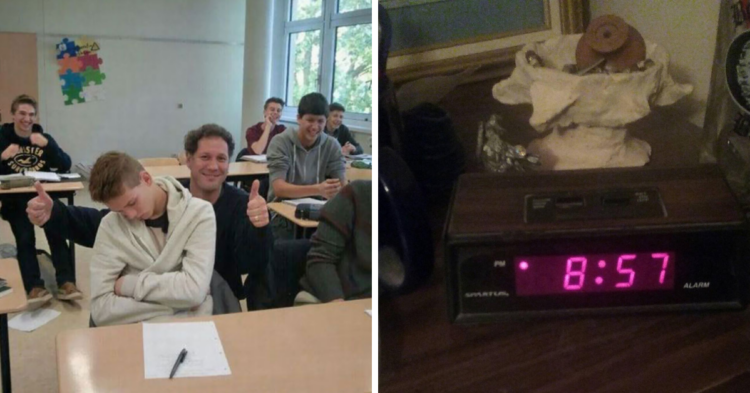I distinctly remember how tired I was as a teenager. Between homework and extracurricular things, I just couldn’t get enough sleep some days. I’d nap every single day when I got home from school. It seems like things haven’t changed much since then for other teens, either.
Of course, it’s because teens actually need more sleep than adults do. Getting them the sleep they need hasn’t been as easy as it ought to be, however.
Generally speaking, teenagers in America don’t get enough sleep.

Studies and polls have shown that, for adolescents, sleep deprivation is an epidemic . Teens are sleepwalking through their days, and in many cases, sleeping when they should be taking notes.
It’s not a huge secret — parents and researchers have been playing the blame game trying to figure out what the cause is for years.

Many parents think that screens are the reason teens don’t sleep enough, and there’s evidence to prove that they don’t help.
Some blame an unreasonable amount of homework, usually coupled with the extracurriculars and part-time jobs needed to make college a possibility.
And again, there’s certainly evidence that teens are being pulled in too many directions.
However, regardless of the reasons, the effects of all that sleep deprivation can greatly affect a developing brain: Inability to concentrate, poor grades, drowsy-driving, anxiety, depression, and so on.
So whether the source of the problem has been identified or not, a solution is sorely needed.

And up to now, solutions haven’t been coming out of the woodwork. Those heavy workloads are kind of a fact of life.
And turning off screens earlier is a good idea in theory, but not necessarily realistic.
So Seattle’s public schools tried a pilot program that used a wonderfully obvious idea: Just starting classes later.
Of course, it wasn’t as straightforward as it sounds. Starting classes later meant rearranging bus schedules, changing extracurricular activity schedules, and getting parents on board. It took a year to figure it all out.
But two high schools in Seattle managed to sort it out and moved the start time from 7:50 a.m. to 8:45 a.m.
The students involved in the study wore activity monitors on their wrists that the researchers collected data from. Their findings were exactly what they hoped for: The teens used that extra time to get more sleep.
They didn’t go to bed any later than they had before — they used the later start to get more sleep.
Average sleep on school nights went from six hours and 50 minutes to seven hours and 24 minutes. That’s still less than the recommended eight to 10 hours, but definitely an improvement.
Even though the kids were only averaging an extra 34 minutes of sleep, the impact of that extra sleep was noticeable.
The study was at least partly worked into a biology class, and after the start times were moved ahead, grades for the kids in that class improved by 4.5%.
Absences and late arrivals also decreased at one of the schools.
More schools are now considering changing their start times as well.

One district in Virginia , for example, will have students starting class later in 2020, and California almost passed a law preventing schools from starting earlier than 8:30 a.m. in 2018.
So, this seems like a reasonable, achievable thing to do to help teens get the sleep they need.
The question is, will the momentum from this study actually catch on, or will those few areas trying it out be the only ones to do so? Time will tell!

















































